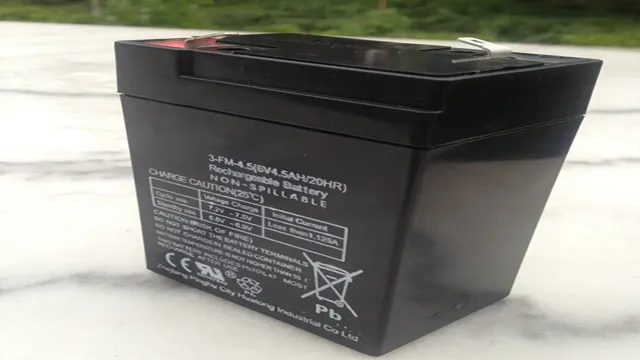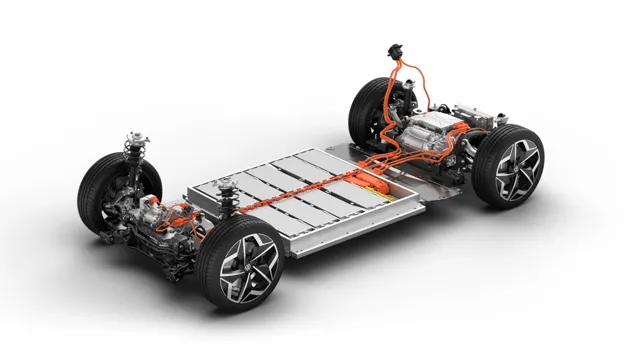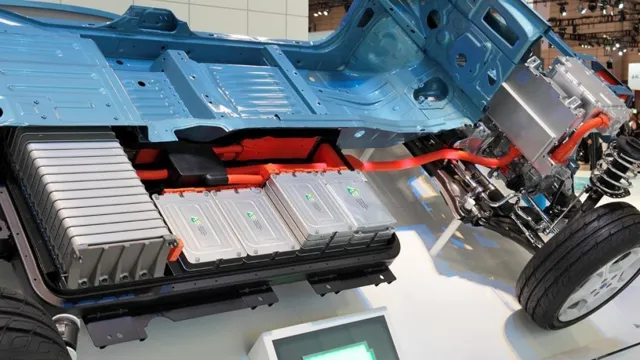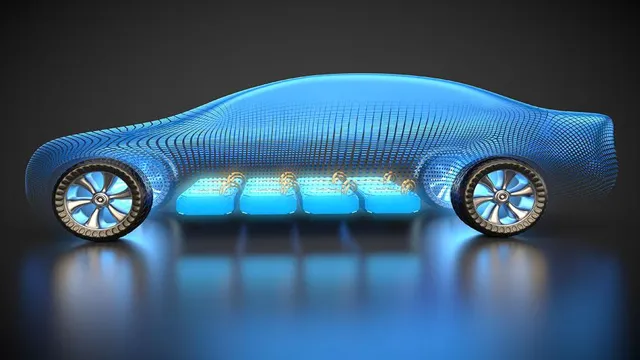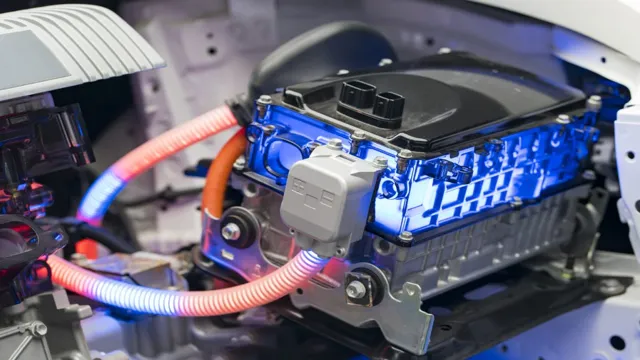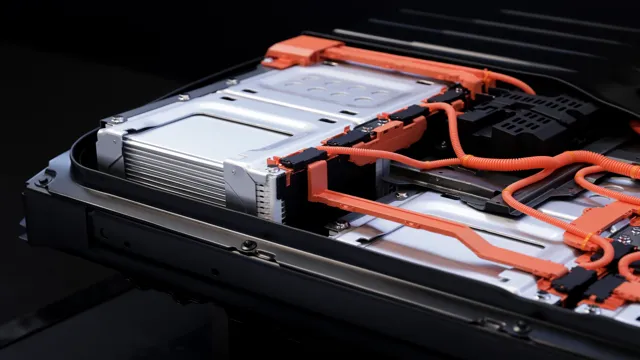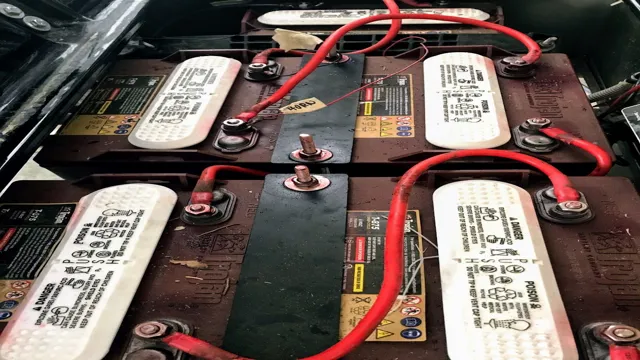Reviving Sustainable Energy: The Untapped Potential of Used Electric-Car Batteries
As the world moves towards a sustainable future, electric cars have become increasingly popular. However, one question that arises is what happens to the batteries once their life ends? Instead of letting them end up in landfills, used electric-car batteries are being given a second life. With the increase in demand for renewable energy, these batteries are being repurposed to store energy for homes, businesses, and even whole cities.
By doing so, they are helping to store energy accumulated from renewable sources such as solar and wind. Through repurposing, we are not only keeping waste out of landfills but also reducing the need for new batteries to be produced. This helps reduce the carbon footprint of the manufacturing process, which is a significant contributor to the environmental impact of batteries and other electronics.
Furthermore, repurposed electric car batteries are significantly cheaper than new ones, making them a more affordable solution. Many companies are working on developing technology that can ensure that these batteries are safe and reliable even after years of use. In conclusion, repurposing used electric-car batteries is not only a sustainable solution but also a smart one.
It is a great way to make use of already available resources while also reducing the carbon footprint of battery production. And with storage technology being improved every day, the future is looking very bright for these second-life batteries.
Sustainability and Cost Benefits
As used electric-car batteries become more widely available, there is growing interest in their potential to reduce waste and provide cost benefits. Rather than being discarded, these batteries can be repurposed for a range of other applications such as energy storage for homes and businesses. By giving these batteries a second life, less waste is generated and more sustainable energy solutions can be created.
Additionally, repurposing used batteries can provide cost benefits by reducing the need for new battery production, which can be a costly and resource-intensive process. This in turn can help to make electric vehicles more affordable as the cost of production is lowered. Overall, the sustainability and cost benefits of reusing used electric-car batteries are significant and are likely to drive greater adoption of this approach in the years to come.
Impact on the Environment
When it comes to the impact on the environment, implementing sustainable practices can provide benefits for both the planet and your bottom line. By reducing waste, conserving resources and minimizing emissions, companies can lower their environmental footprint while also saving on costs. For example, using renewable energy sources such as solar, wind or hydro power can reduce reliance on non-renewable sources that contribute to pollution and climate change, while also reducing energy bills.
Similarly, adopting circular economy principles that prioritize reuse, recycling and repurposing of materials can cut down on waste disposal costs and create new revenue streams. By prioritizing sustainability and making it a core part of their operations, companies can not only contribute to the health of the planet but also improve their own financial sustainability in the long run.
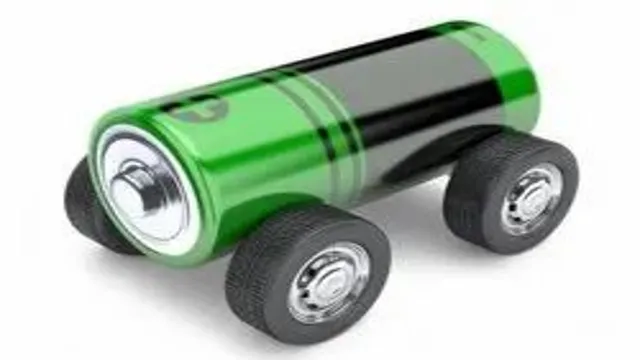
Financial Savings
Financial savings can be a significant benefit of implementing sustainable practices in a business. By reducing waste and energy consumption, companies can save money on operational costs. For example, using energy-efficient equipment and optimizing the heating and cooling system can significantly reduce the energy bill.
Additionally, implementing a waste reduction program, such as recycling or composting, can reduce disposal costs and even generate revenue through the sale of recyclables. Sustainable practices can also improve the company’s reputation and attract environmentally conscious customers, which can increase sales and ultimately boost revenue. Therefore, investing in sustainable practices not only benefits the environment but can also have a positive impact on a company’s bottom line.
Ways to Repurpose Used Batteries
As used electric-car batteries continue to gain popularity, it’s important to consider their eventual disposal and repurposing. One way to give these batteries a second life is by using them in stationary energy storage systems, such as in homes or businesses. By repurposing the used batteries instead of simply recycling them, we can reduce waste and make a positive environmental impact.
Additionally, used electric-car batteries can be used to power remote locations, such as off-grid cabins or communication towers. This can help reduce dependence on traditional energy sources and increase access to electricity in remote areas. Overall, repurposing used electric-car batteries is an innovative solution to help reduce waste and create a more sustainable future.
Home Energy Storage
Home energy storage systems have become increasingly popular in recent years, and used batteries are a cost-effective way to repurpose and enhance their functionality. The most common types of batteries used in home energy storage systems are lithium-ion batteries, which can last for several years before reaching the end of their lifespan. Once these batteries are no longer suitable for use in electric vehicles or other high-demand applications, they can still have 80% or more of their original capacity, making them ideal for repurposing in home energy storage systems.
By connecting used batteries to a home solar panel system, homeowners can store excess energy generated during the day and use it to power their homes at night or on cloudy days, reducing their dependence on the grid and saving money on their energy bills. Not only does repurposing used batteries help reduce waste and save money, but it also supports the growth of sustainable energy practices, which is essential for a greener future.
Off-Grid Power
Off-grid power solutions are becoming increasingly popular with more people seeking independence from traditional power grids. Repurposing used batteries is a cost-effective way to store and use renewable energy, making it an ideal solution for those looking to live off-the-grid. There are various ways to repurpose used batteries, such as rebuilding lead-acid batteries or converting a used nickel-cadmium battery into a power bank.
Another option is refurbishing lithium-ion batteries and fitting them into electric vehicles or storage systems. These solutions not only promote sustainability but also reduce waste and save money in the long run. Repurposing batteries may require some technical expertise, but it is worth exploring as a green and cost-saving alternative to traditional power sources.
Solar Power Systems
Solar Power Systems Repurposing used batteries is an excellent way to reduce environmental waste and make the most of your renewable energy system. These batteries can still hold a significant amount of energy that can be used to power other appliances or devices, rather than throwing them away. One way to do this is by using the batteries in a power bank or backup system.
A backup system can store energy from your solar panels during the day and provide electricity at night or during power outages. A power bank, on the other hand, can be used to charge your electronic devices on-the-go. This not only saves you money but also reduces the carbon footprint of your household.
Remember to always properly dispose of old batteries and recycle them if possible, as they can still contain hazardous materials. With the right approach, you can repurpose your used batteries and make a positive impact on the environment.
Used Batteries and the Future of Electric Cars
As used electric-car batteries become more common, many are wondering what will happen to them. While these batteries may no longer be suitable for use in vehicles, they still have a lot of potential. One option is to repurpose these batteries for stationary storage, such as in homes or businesses.
This allows them to continue to be useful and extends their lifespan. Additionally, recycling these batteries can help reduce the environmental impact of the electric car industry. However, there are still some challenges to overcome, such as figuring out how to efficiently and safely transport the batteries for recycling.
As the electric car industry continues to grow, finding sustainable solutions for used batteries will be crucial to the future of transportation and energy storage.
Extended Range
Extended range electric vehicles (EREVs) are becoming more and more popular as battery technology improves and the demand for cleaner energy increases. However, the cost of buying a brand new battery for an electric car can be quite expensive. This is where the concept of using used batteries comes in.
While the battery may no longer be suitable for use in a car, it can still hold a significant amount of charge, which can be used in other applications, such as home energy storage. This not only provides a second life for the battery but also reduces the cost of owning an electric car. Additionally, the use of used batteries can also help reduce waste, as the batteries would otherwise end up in a landfill.
As EREVs become more popular, it’s clear that used batteries will play a significant role in the future of electric cars, providing extended range and making the transition to electric vehicles more accessible for many people.
Reducing Waste
As the world becomes increasingly mindful of the environment, reducing waste has become a pressing issue. One particular area of concern is the fate of used batteries, especially with the rise of electric cars. These batteries, while essential to powering electric vehicles, carry a high environmental impact due to their use of rare metals and toxic chemicals.
However, advancements in technology and infrastructure are ensuring that these batteries are being recycled more efficiently than ever before. Companies like Tesla are leading the way in developing new battery technology and recycling processes that are more sustainable. With the rapid growth of the electric car industry, it is crucial that we find ways to reduce battery waste and ensure that they continue to power our cars and the planet.
Final Thoughts
As used electric-car batteries continue to rise in popularity, more and more people are becoming aware of the potential benefits they offer. Not only do they provide a sustainable solution to traditional fossil fuels, but they also have the potential to be repurposed and given a second life after their use in vehicles. By using these batteries for energy storage in homes and businesses, we can help reduce the strain on the electrical grid and promote a more reliable and efficient energy system.
Additionally, companies are exploring ways to recycle and refurbish these batteries, further extending their lifespan and reducing waste. As we continue to move towards a more sustainable future, it’s important to recognize the potential of used electric-car batteries and continue to explore ways to utilize them effectively.
Conclusion
Used electric-car batteries are like re-purposed superheroes – they may have lost their power to drive a car, but they still have the strength to power homes, store renewable energy, and even help stabilize the energy grid. They may no longer be the lead character in the story of an electric-car’s life, but their reimagined second act is just as exciting and impactful.”
FAQs
What is the lifespan of electric-car batteries?
The lifespan of electric-car batteries can vary depending on factors such as usage, charging habits, and environmental conditions. However, most electric-car batteries are designed to last at least 8-10 years or around 100,000 miles.
Can used electric-car batteries be recycled?
Yes, used electric-car batteries can be recycled. The materials such as lithium, cobalt, and nickel used in the batteries can be extracted and repurposed for use in new batteries or other products.
How much does it cost to replace an electric-car battery?
The cost to replace an electric-car battery can vary depending on the make and model of the car. A replacement battery for a popular electric car such as the Nissan Leaf can cost around $5,500 to $7,500.
Can used electric-car batteries be repurposed for home energy storage?
Yes, used electric-car batteries can be repurposed for home energy storage. This can be an affordable way to power your home using renewable energy. However, it is important to consult with a professional to ensure proper installation and safety precautions are taken.
